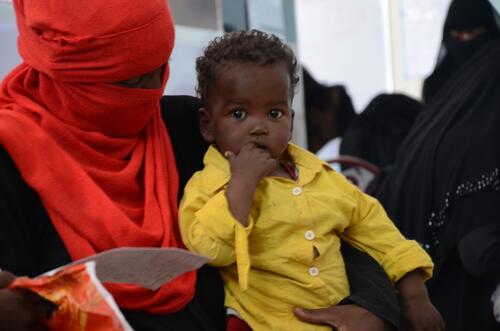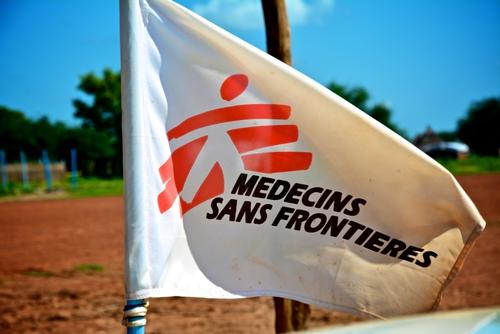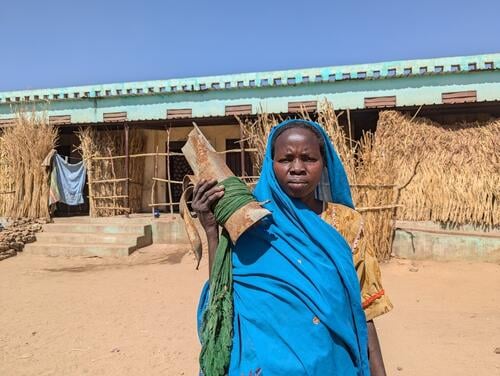Overview
There has been a significant decrease in the number of airstrikes and violence in the north and some areas in the south, yet we are witnessing another emergency related to the patients with chronic diseases. The country is still under an embargo that hinders the importation of medication, causing patients with chronic diseases nationwide to struggle to find the treatment and medication they need. Many are dying as a result.
Patients with kidney failure are at risk of death as the dialysis treatment centres were badly affected by lack of supplies, due to import restrictions resulting from the embargo. The Yemeni Ministry of health is almost unable to cover the costs alone. Weekly sessions per patient were reduced from three to two. MSF is now supporting dialysis treatment centres in Sana’a, Mahweet, Hajja and recently Taiz but this is temporary support as MSF is focusing on providing life-saving healthcare. We are holding a seminar on 26 July with the aim of urging stakeholders and international organisations to step in and support the dialysis treatment centres in Yemen.
Last year, two MSF supported facilities were hit by airstrikes – Haydan health centre in Sa’ada in October, and a mobile clinic in Al-Houban, Taiz in December 2015. MSF-supported Shiara hospital was hit by a projectile in January 2016. This is a reflection of how badly the health system in Yemen has been affected by war. The population is struggling to reach functioning health facilities.
The situation in Taiz remains critical, with some of the heaviest and most sustained fighting in the country. MSF-run and supported hospitals in Taiz have been receiving thousands of war wounded in recent months. An increase in fighting in March, April and May necessitated the treatment of around 1,700 war wounded alone – most of the wounded coming from within the city where many civilians are caught in the middle of intense fighting. The patients MSF sees in Taiz are mainly suffering from injuries due to airstrikes, shelling, gun shots and, more recently, land mines. Movement in and out of the city remains restricted and dangerous for civilians and humanitarian actors.
While the number of patients injured by airstrikes has decreased significantly since mid-March, MSF is receiving an increasing number of victims of land mines and unexploded ordnance.
Key MSF figures (March 2015 to June 2016)
- 43,019 war wounded and violence victims
- 19,432 surgeries were performed in MSF facilities.
- 82,137 medical consultations were provided for displaced people in MSF mobile clinics
- 14,120 women had given birth in MSF facilities
- 209,236 patients had been seen in the emergency room
- More than 1,300 tonnes of medical supplies had been sent to Yemen
Operational summary
MSF is active in 11 hospitals and health centres, and providing support to another 18 hospitals or health centres in eight governorates: Aden, Al-Dhale’, Taiz, Saada, Amran, Hajjah, Ibb and Sana’a governorates.
More than 2,000 MSF staff are currently working in Yemen, including 90 international staff, making it among MSF's largest missions in the world in terms of personnel.
Aden
Aden is currently dominated by southern resistance forces, backed by the military coalition led by Saudi Arabia.
MSF is running an Emergency Surgical Hospital in Sheikh Othman district, in the north of the city. The hospital provides free medical care in an emergency room, a hospitalization ward and an operating theatre, and provides mental health and physiotherapy consultations. MSF is still seeing victims of landmines and unexploded ordnance coming from Aden, Taiz, Lahj and Al-Dhale’.
A medical doctor and nurse conduct weekly visits to Aden Central Prison to provide primary healthcare services. An average of 50 consultations is provided every week.
Training
MSF provides on-the-job training to MoH doctors and nurses as part of our regular activities. We have one doctor and two nurses at a time. We began this activity in February and have trained 14 doctors and nurses so far. An official training programme, supported by the David Nott Foundation and validated by the Royal College of Surgeons of England, ran for three days in early July. Approximately 40 surgeons attended the course, from our hospital and other hospitals in Aden, Lahj, Abyan, Lawder and Shabwa.
Support for other hospitals
MSF has been supporting Ibn Khaldoun Hospital in Lahj with regular donations of medical supplies since December 2015 and Al-Razi hospital in Abyan since February 2016. The support includes medications to the emergency room and emergency operating theatre supplies to Lawadar Hospital in Abyan, and Al-Razi Hospital in Abyan.
Blood bank
MSF provided blood 700 screening test kits to the national blood bank in Aden to restart their blood donation activities.
Amran
The situation in North Amran governorate is relatively calm; as a result people fleeing conflict are settling in this area. MSF has been providing general consultations to displaced people with mobile clinics.
MSF is supporting Al-Salam hospital and Huth health centre in healthcare provision, donations of medication, oxygen, logistical equipment, electricity, human resources and a referral system. MSF is providing medical supplies, training personnel in emergency care, repairing and improving damaged structures, and running ambulance and reference systems in a number of health structures in Amran Governorate.
Scabies has spread in Khamer & Huth recently. In January MSF treated around 150 patients while in May we treated around 2,000 patients. For this reason MSF is doing nowadays a mass treatment campaign in the two towns in the second week of July. Please click on the facebook link of this document to see photos.
Saada
Despite the decrease in number of airstrikes, the MSF-supported Al Jumhori hospital has not seen a decrease in its activities. We are still seeing land mine and unexploded ordnance victims and car accidents victims. Activity continues in the other departments such as maternity and operating theatre and in the inpatient department. In addition, MSF is providing assistance in the emergency room and in the maternity department of Razeh Hospital that was hit by a projectile in January. We have regular weekly visits to support the activities as well as organising referrals from here to Al-Jumhori reference hospital in Saada city.
The Haydan Health Centre, which was hit by an airstrike on 26 October 2015, has resumed activities after re-building the centre. Besides Haydan, MSF is also supporting the emergency rooms and referral system in Noshoor and Yasnim health centers.

Hajjah
Though the security situation in Hajjah city has been relatively calm, war wounded people continue to arrive at the MSF-supported Al-Jamoorhi hospital from the front line area (Haradh). MSF started supporting the hospital's maternity ward in June.
In the displaced persons (IDP) camps of Abs district MSF is supplying drinking water to 16,000 people, installing water bladders and regularly supplying water to meet minimum humanitarian standards in the camps. Through a system of mobile clinics, MSF teams are also providing basic medical care to people as well as monitoring the nutritional situation.
In Abs Hospital MSF is supporting emergency cases in the ER, the paediatric ward, the maternity department and emergency surgery with post operative care. MSF also refer the some complicated cases to the specialized hospitals in Hajjah and Hodida.
Sana'a
MSF continues to support the three main hospitals in Sana'a. MSF supports the emergency room in Al-Kuwait hospital and war wounded patients in Al-Jumhori and Al-Thawra hospitals. MSF also distributes war wounded kits in the surrounding districts such as Arhab, Hamdan and Jihnanah.
MSF's support to the Ministry of Health's HIV programme in Sana'a continues as normal, with 97% of the programme's 1,300 patients receiving their life-saving anti-retroviral treatment despite the tensions and violence in the city. MSF has regularly provided blood testing kits to the National Blood Bank in Sana’a since September 2015.
MSF is now supporting three dialysis treatment centres in Sana’a, Hajja and Mahweet and recently the dialysis centre in Taiz. Patients with kidney failure are at risk of death as the dialysis treatment centres were badly affected by lack of supplies. Weekly sessions per patient were reduced from three to two. MSF will be supporting these centres until November 2016 but we need to identify international organisations who are willing support these centres as MSF is focusing on providing life-saving healthcare to the wounded and violence victims in ten Yemeni governorates in Yemen.
Al-Dhale
In Al Dhale governorate, MSF continues to support hospitals in Al Dhale, Qataba and to health centres in Al Azariq. MSF activities in Al Dhale include running emergency room, outpatient consultations, surgeries, inpatient services, patient referrals, observation room, paediatrics, nutrition program, maternity and reproductive health, spread over the three sites. In January alone, a total of 5,000 outpatient and emergency room consultations were carried out by the MSF teams.
Taiz
The situation in Taiz remains critical, with some of the heaviest and most sustained fighting in the country. MSF runs and supports hospitals in Taiz which have been receiving thousands of war wounded over the last months. An increase in fighting in March, April and May resulted in the treatment of around 1,700 war wounded alone. Most of the wounded are coming from within the city where many civilians are caught in the middle of the intense fighting. Patients MSF sees in Taiz are mainly suffering from injuries due to airstrikes, shelling, gun shots, and landmines. Access in and out of the city remains restricted and dangerous for civilians and humanitarian actors.
In November 2015 MSF opened the Mother and Child Hospital in Al-Houban area of Taiz. Services include emergency room, outpatient department, under 5 years, maternity including caesarian sections, reproductive health, operating theatres, paediatric care, nutrition programs and patient referrals. MSF is providing at least 300 general consultations to mothers and children in the hospital daily. MSF is also providing medications to the emergency room and emergency OT supplies to Khalifa Hospital in Al-Turba in Taiz.
Ibb
MSF began medical and humanitarian operations in Ibb governorate in 2015. Ibb is the most densely populated region in the country and borders on two active front lines.
MSF has been supporting the emergency department of Ibb’s largest central hospital since early 2016. The most important referral medical structure in the region, the hospital has a catchment population of 2.5 million inhabitants. The objective is to improve access to free good quality emergency health care in general, and to improve the hospital’s capacity to clinically manage a large influx of wounded in particular. Accordingly, our staff are seeing 600 to 850 patients in the emergency room per week, 15%–20% of whom are victims of violent trauma.
Simultaneously, in the southern border with the Taiz governorate, close to an active front line, MSF has rehabilitated and is supporting a general hospital, improving access to free good quality emergency health care, improving the hospital’s mass casualty management (as above), and provide lifesaving surgeries as well as inpatient hospitalization for the most severe medical conditions. The catchment population of this medical structure is estimated to be 500,000 inhabitants.
On average MSF medical teams at this hospital provide around 600 emergency room consultations per month, 120 life-saving related surgeries and more than 100 severe medical cases’ hospitalizations. Violent and accidental trauma represents more than 50% of the cases seen in this medical structure.





